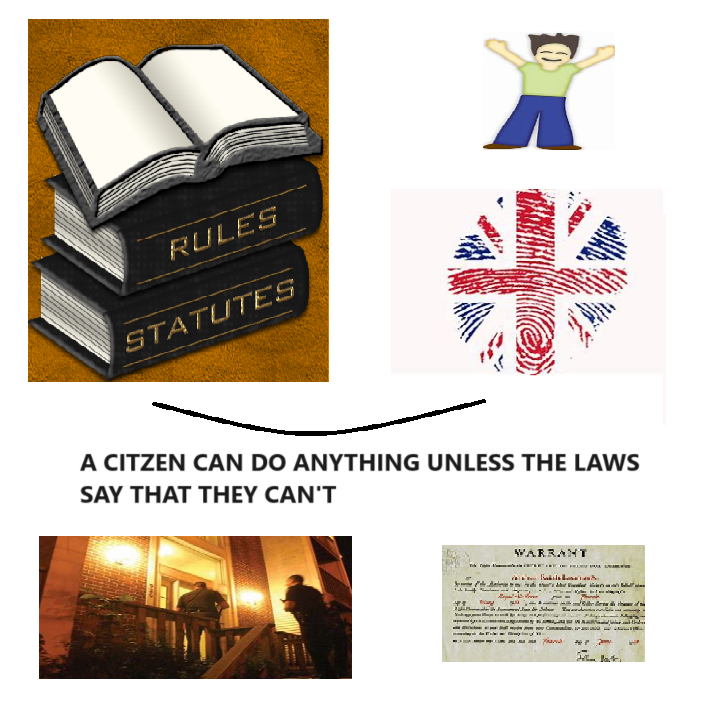Entick v Carrington [1765] EWHC KB J98
Citation:Entick v Carrington [1765] EWHC KB J98
Rule of thumb 1:Are the books written by the institutional writers a source of law? Yes, the institutional books are a source of law if the statutes & case-law are silent on a legal matter.
Rule of thumb 2:What is the number principle of legal methods in England? You are allowed to do anything you want, unless a statute, Judgment, or institutional textbook forbids you from doing so.
Rule of thumb 3:Can the Police enter your property without a warrant? Every single citizen has a right to private property, and the Police cannot enter your property without a warrant.
Judgment:
First and foremost this case is famous for being such a well written and resonating Judgement that lots of obiter dicta from the case have been taken and used in lots of different legal subjects. The basic facts were that there was a street speaker who used to distribute pamphlets to try and effect positive social change. The Government felt somewhat threatened by him. Using the Royal Prerogative to prevent ‘sedition’, meaning an intent to overthrow the Government or the monarchy, Lord Halifax ordered the Police chief, Carrington, decided to invade the house of Entick to see if they could find any evidence of criminal wrongdoing. The Police chief Carrington duly ramshackled the place causing thousands of pounds worth of damages to Entick’s house, but did not find any evidence of him carring out sedition. The Court held that this was a misuse of power. They held that there were no specific criminal laws which Entick could have said to have breached and that what he was saying prior to house being searched was categorically not seditious. The Court held that before the state has the authority to go into someone’s house they must first have a properly executed warrant – this also showed that where actions of people had the potential to breach fundamental rights, then the Court had the power to create new case law, ‘By the laws of England, every invasion of private property, be it ever so minute, is a trespass. No man can set his foot upon my ground without my licence, but he is liable to an action, though the damage be nothing; which is proved by every declaration in trespass, where the defendant is called upon to answer for bruising the grass and even treading upon the soil. If he admits the fact, he is bound to show by way of justification, that some positive law has empowered or excused him. The justification is submitted to the judges, who are to look into the books; and if such a justification can be maintained by the text of the statute law, or by the principles of common law. If no excuse can be found or produced, the silence of the books is an authority against the defendant, and the plaintiff must have judgment’, Lord Camden

Warning: This is not professional legal advice. This is not professional legal education advice. Please obtain professional guidance before embarking on any legal course of action. This is just an interpretation of a Judgment by persons of legal insight & varying levels of legal specialism, experience & expertise. Please read the Judgment yourself and form your own interpretation of it with professional assistance.

